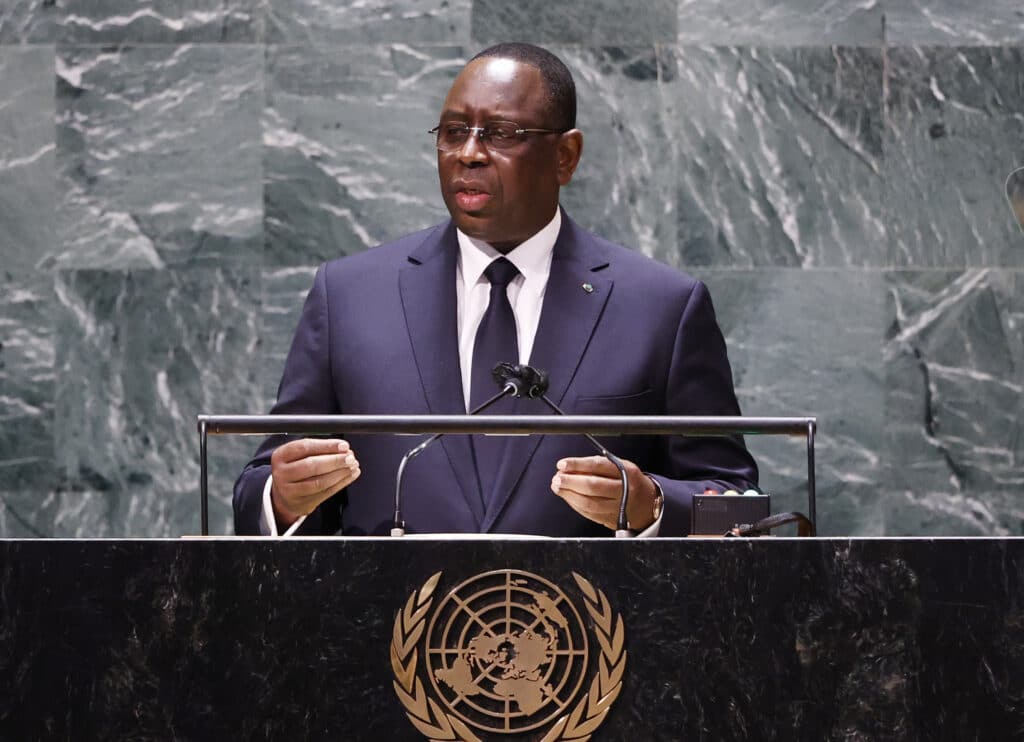Senegalese lawmakers draw up chilling new law for LGBT+ people and allies
Anti-LGBT+ lawmakers in Senegal are seeking to toughen the west African nation’s already horrific repression of queer citizens.
A bloc of National Assembly members have drafted a bill that would lengthen potential jail terms for those convicted of same-sex acts.
The penalty is already up to five years imprisonment for “acts against nature” – but lawmakers hope to stretch this out to a decade, they announced Monday (13 December).
And in disturbing parallels to Ghana, lawmakers even hope to make simply advocating for LGBT+ a punishable offence, 76 Crimes reported.
People who write, speak or finance any form of advocacy in favour of queer rights could face three-to-five years in prison and a fine of CFA500,000 to five million.
The chilling proposals could also place crosshairs on intersex people, too. Lawmakers wish to criminalise “intersexuality” with up to 10 years in jail.
Supporters for the bill grossly consider being intersex – folk born with sex characteristics that don’t fit neatly into the typical binary – as “being adept at all imaginable sexual orgies”.
The proposals seek to plug the apparent gaps in the country’s laws by comparing LGBT+ people to “bestiality, necrophilia and other related practices”.
According to grassroots activists, the law has been in the pipeline for the last two years, fuelled by anti-LGBT+ lobbying collective Ànd Sàmm Djikko Yi.
Senegal activists recoil in horror at ‘freedom-killing’ anti-LGBT+ bill
Alioune Souaré, an assembly deputy and legal expert who helped draft the bill, told Reuters that he and other lawmakers hope to present the proposal to parliament “before the end of the week”.
Souaré is joined by Ababacar Mboup, Mamadou Lamine Diallo and Moustapha Guirassy in forming the “Say No To Homosexuality Alliance”.
While it remains unclear if the bill would shore up any support, local activists have reached with an uneasy mixture of horror and a lack of surprise to the effort to double prison time for LGBT+ people.
“When individual freedoms, in particular the most sacred – privacy between consenting adults – are attacked, then there is little time left to realise that democracy is in danger,” queer activist Djamil Bangoura told the news wire.

The Freedom Collective of Senegal dubbed the legislation the “freedom-killing bill” in a statement to the press.
“Homosexuality has always existed in Senegal, as it has everywhere else, and LGBTI people are a full-fledged component of Senegalese society that has the right to respect, just like everyone else,” they wrote.
For years, views held by both the public and politicians and presidents alike have not been thawed in Senegal when it comes to LGBT+ issues.
“Never, under my authority, will homosexuality be legalised in the Senegalese lands,” said president Macky Sall in 2016.
With article 319 of Senegal’s Penal Code looming, arrests of LGBT+ people has risen sharply, according to a 2020 report by the International Lesbian, Gay, Bisexual, Trans and Intersex Association.
Since 2010, local activists have sought to raise the alarms over an upswing in arrests, many of which go unreported. The police’s high-handed arrests, they said, have fuelled a climate of fear for LGBT+ Senegalese.
The country has been met with bruising words by the United Nation’s Human Rights Committee, with the body repeatedly recommending in Universal Period Reviews that the country decriminalise homosexuality.
It is a country, the IGLA said, where “homophobic mobs” regularly tear through towns and president Sall called for LGBT+ people to be “hunted” during the 2019 presidential elections.
But such a crackdown is nothing new, local advocacy group Arc-en-Ciel warned in the report. They have ripped through the country for years and swelled in 2018 – at least 36 gay men were arrested last year alone, IGLA found.